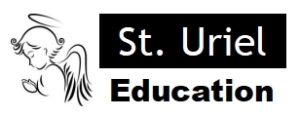Microsoft’s big defense contract that looks to supply the US Army with modified HoloLens AR headsets isn’t going so well. As first reported by Bloomberg, the Senate panel that oversees defense spending announced significant cuts to the Army’s fiscal 2023 procurement request for the device.
Microsoft announced last year it had won a US Army defense contact worth up to $22 billion to develop an Integrated Visual Augmentation System (IVAS), a tactical AR headset for soldiers based on HoloLens 2 technology.
Now the Appropriations Defense Subcommittee announced it’s cut $350 million from the Army’s procurement plans for IVAS, leaving around $50 million for the device. The subcommittee cites concerns based around the program’s overall effectiveness.
Concept testing in 2019, Image courtesy CNBC
“The Committee remains concerned that IVAS continues to face software, hardware, and user-acceptance challenges that the Army has not sufficiently addressed,” an official statement reads, which was obtained by Breaking Defense. “While the Committee was encouraged by the Department of the Army’s 2021 decision to extend testing and evaluation for an additional 10 months, it notes that significant development challenges with IVAS 1.1 remain.”
Earlier this year the US Congress froze $394 million from the Army’s IVAS budget, which Business Insider noted at the time would only leave around $400 million. Even then, that was allegedly $200 million short of what Microsoft needed to recuperate development costs.
Instead the US government appears to be reallocating the 2023 funds to support procurement of the Army’s Enhanced Night Vision Goggle-Binocular, increasing that program’s budget by $300 million.
The subcommittee also increased spending on a number of other Army programs, including ground vehicle procurement, Abrams tank upgrades, Stryker upgrades, new Armored Multi-Purpose Vehicles, and approved budgets for both AH-64 Apache and UH-60 Black Hawk helicopters.
Business Insider reported earlier this year that Microsoft had internally expressed low expectations for its latest version of IVAS, which was set to begin real-world operational tests in May.
This follows reports that cast doubt on a prospective HoloLens 3 amid an internal division that may have hobbled the company’s efforts to release its next AR headset as planned.


Leave A Comment